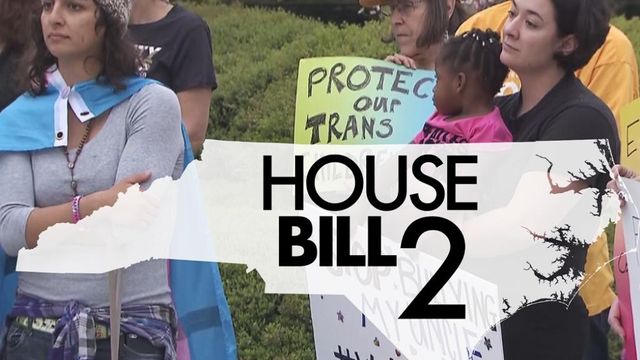Durham residents push for ordinance bucking HB2
A social media campaign is putting pressure on the Durham City Council to adopt a nondiscrimination ordinance that would fly in the face of a controversial state law.
Posted — Updated"Emails are flying around. Messages are flying around. People are standing up and saying, 'Yeah, let’s do something about this,'" organizer Chris Vitiello said. "Our goal is to overturn House Bill 2."
Lawmakers passed the legislation during a one-day emergency session last March to nullify a Charlotte ordinance that required businesses to allow transgender individuals to use the public bathroom of their choice. In addition to restricting transgender people to public bathrooms that correspond to the gender on their birth certificates, the law excluded the LGBT community from anti-discrimination protections and blocked cities from setting their own minimum wage.
The law created a national backlash, and businesses scrapped planned expansions in the state, entertainers canceled concerts, the NBA, NCAA and Atlantic Coast Conference moved athletic events and organizations relocated conventions.
An effort to repeal House Bill 2 a month ago went down in flames, even after Charlotte rescinded its ordinance.
"The issue is kind of not on everybody’s mind right now," Vitiello said. "It was a big deciding issue in the election, and it’s kind of gotten forgotten about. Meanwhile, we’re still living under that law. We want to bring it back to the front."
Democratic lawmakers have made a repeal effort one of their priorities this year, but Republican Senate leader Phil Berger said Wednesday that a lot of work is needed on a compromise proposal.
Sen. Mike Woodard, D-Durham, advised against a Durham ordinance, saying it could derail any attempt at a House Bill 2 repeal.
"I don't think that I could recommend us doing that," Woodard said of the push for a Durham ordinance. "I don't want us to end up in the same frying pan that Charlotte was in."
"I think what we saw in December, with a lot of the activity that was going on on social media, discussions by members of various councils around the state, that there’s a real concern – I think it’s a legitimate concern – that things will probably occur, attempts to adopt Charlotte-like ordinances," Berger said Thursday. "I think that would be the last thing that we would need if we’re trying to work some solution out."
Reece said in a letter to constituents this week that, while he appreciates the push for action on House Bill 2, a local ordinance would be unenforceable as long as the state law remains in effect.
"Until HB2 is repealed by state action or thrown out by the courts, passing such ordinance would be a purely symbolic move with no impact on the lives of the people of this city," he wrote in the letter.
Vitiello said, symbolic or not, a Durham ordinance could be what's needed to move a state repeal forward.
"Passing an ordinance would do a lot of things. Currently, it’s illegal to pass this ordinance, so it would perhaps provoke some type of response from the General Assembly, that they would have to take notice," he said. "If we didn’t think it was realistic, we wouldn’t be doing this."
• Credits
Copyright 2024 by Capitol Broadcasting Company. All rights reserved. This material may not be published, broadcast, rewritten or redistributed.





